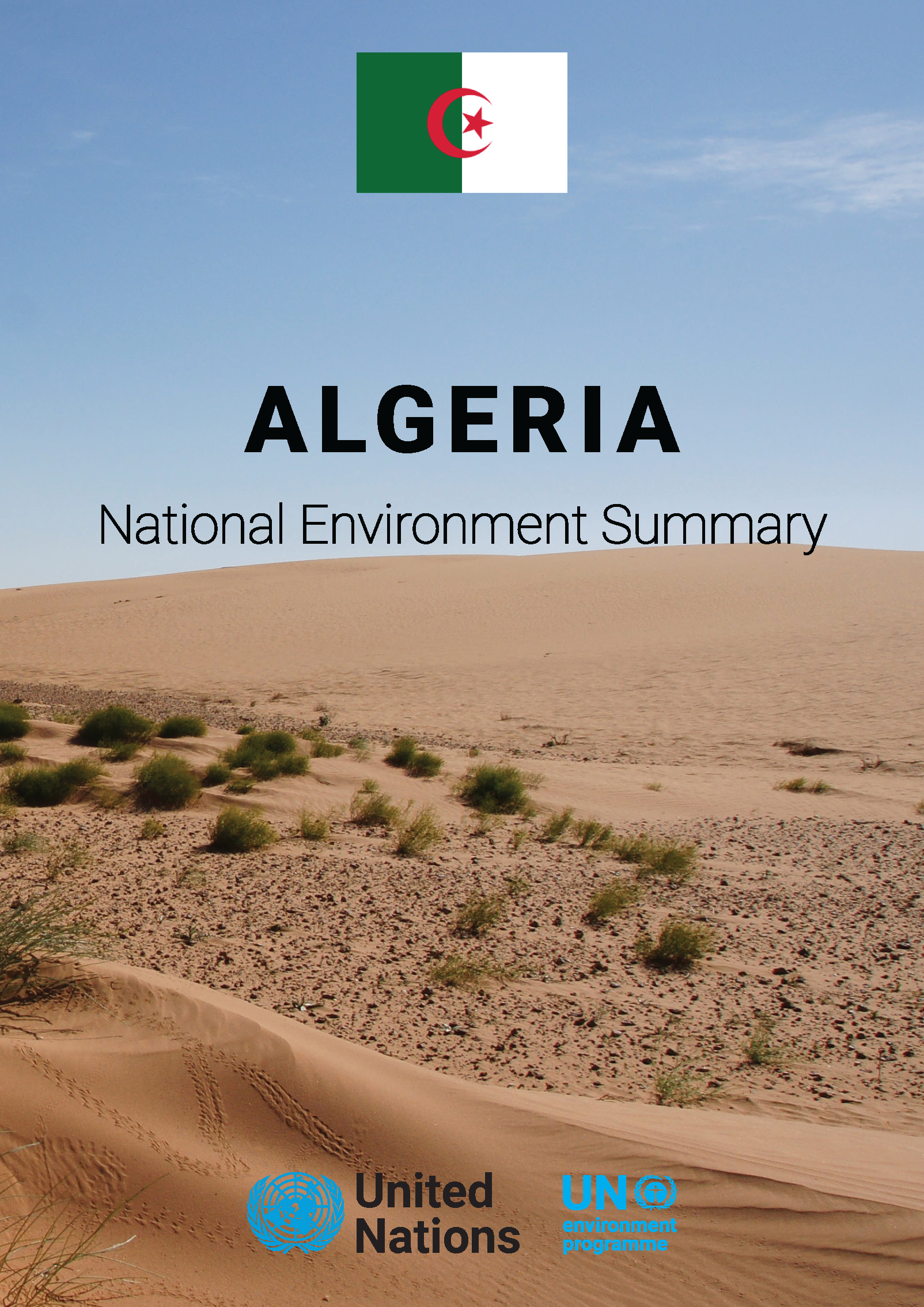Algeria National Environment Summary
01 January 2025
The People’s Democratic Republic of Algeria, situated in North Africa, is the continent’s largest country, covering an area of 2,381,741 km². It is bordered by the Mediterranean Sea to the north, Tunisia and Libya to the east, Niger, Mali, and Mauritania to the south, and Morocco and Western Sahara to the west. The northern region features the Atlas Mountains stretching from east to west, while the southern part consists primarily of the Sahara Desert.
The state of Algeria’s environment and natural resources remains closely linked with its population growth, spatial demographics, human activities, economic development, and climate change. As of July 1, 2023, the United Nations estimates the country’s population to be 46.16 million, with a median age of 28.2 years and an annual growth rate of 1.44 per cent. The population is predominantly concentrated along the Mediterranean coast, with the capital city, Algiers, home to about 2.7 million people. About 73.2 per cent of the population resides in urban areas (United Nations Department of Economic and Social Affairs [UNDESA) 2023; UNDESA 2024).
Algeria has several laws and policies governing the environment. Article 68 of the Algerian Constitution recognises the right to a healthy environment and mandates the state’s protection and preservation of it for future generations. Municipalities in Algeria are also responsible for environmental protection, including safeguarding public health and hygiene and protecting water resources and soil.
The current NES presents a highlight of key states and trends of Algeria’s environmental sustainability and climate action in the context of the 2030 Agenda. This is done with a view to inspiring in-depth analyses and other interventions at the country and regional level in the context of the country’s “National Strategy for Environment and Sustainable Development (SNEDD 2019-2035) and its Action plans as well as the UN Sustainable Development Cooperation Framework (2023-2027)”. It considers the country’s SDG track as well as key environmental facets in the context of the Leave No One Behind (LNOB) imperative.
Country: Algeria
Published By: UNEP